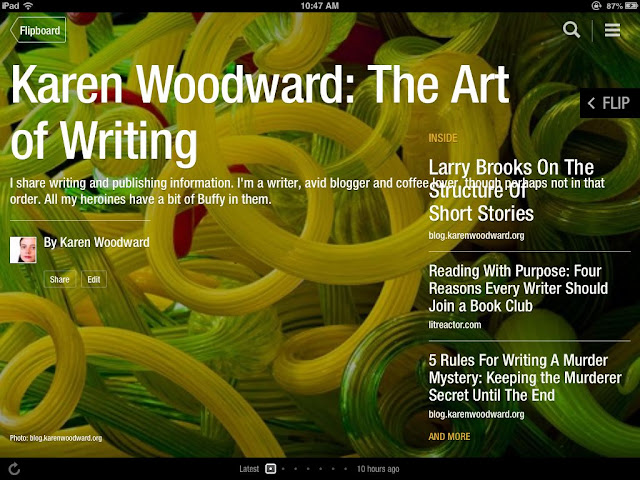
Create Your Own Magazine And Share It With The World, Or Just Your Friends
This is great! Have you ever wanted to curate your own magazine? Flipboard recently added the tools to enable you to do just that. A.J. Dellinger writes:
You can now take that custom built collection of stories that matter to you and share it with your friends as a digital magazine, essentially making you editor-in-chief of a paper made up of just things that interest you and distributed to an audience of likeminded readers. Creating a magazine is just as easy as the rest of the app, as you simply tap the “+” icon on an article and the option to add it as the page of a custom magazine comes up. You also get to title the personalized publication and set it to public or private. (Hands on: Flipboard 2.0 lets you create and share your own digital magazines)
How To Create Your Own Magazine On Flipboard
The good folks at Flipboard emailed me the following:
Flipboard has recently launched a new self publishing feature called Magazines ....I set up a magazine to test out Flipboard's new functionality and published some of my most viewed posts to it, along with a scattering of articles from my Twitter feed. It's here: Karen Woodward: The Art of Writing.
Magazines can incorporate content from virtually any source, including your website, blog, RSS feed and anything you share on social networks like Facebook, Twitter, Instagram, SoundCloud, LinkedIn and Tumblr.
You'll need to:
1) Setup an account
2) Go to share.flipboard.com and install the 'Flip it' bookmarklet. The bookmarklet will allow you to add content to your magazines directly from your web browser.
3) Start browsing the web, and when you find something you want to add to your magazine click the 'Flip it' button. You'll be prompted to login the first time.
4) Click 'Create a magazine', then customize it by adding a name and description, and simply start adding content.
You can also easily create a magazine from within the app.
Once done, check out your magazine on Flipboard, where you'll see your “flipped” items in a print-style layout. You can also tap into any item and promote it to the cover.
You can keep track of your magazine's popularity via it's cover. There you'll see it's number of Readers (Subscribers) and Page Flips.
You'll also get notifications in the app when people like, comment or subscribe to your magazines - so be sure to check.
You can tell people about your magazine by clicking the “share” button on the cover. You'll be able to post a custom link to Facebook and Twitter or have it sent via email.
What Is Flipboard?
For those of you unfamiliar with Flipboard, it is the Swiss Army Knife of social media aggregators. It is also the Vogue of aggregators since it has a beautiful, magazine-like, interface.
In order to view Flipboard you need to download the app. You can get it here: Flipboard app.
Share Your Magazine!
If you create a Flipboard Magazine, please share the link in the comments. :-)
Other articles you might like:
- 5 Rules For Writing A Murder Mystery: Keeping the Murderer Secret Until The End- How To Write Episodic/Serialized Fiction, Part 2 of 2
- How To Write Episodic/Serialized Fiction, Part 1 of 2
Photo credit: Karen Woodward: The Art of Writing.

